Filter by
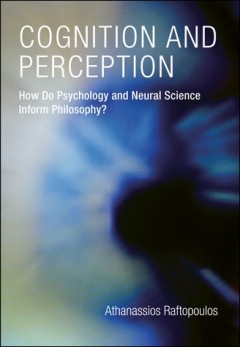
Cognition and perception : How do psychology and neural science inform philos…
An argument that there are perceptual mechanisms that retrieve information in cognitively and conceptually unmediated ways and that this sheds light on various philosophical issues. In Cognition and Perception, Athanassios Raftopoulos discusses the cognitive penetrability of perception and claims that there is a part of visual processes (which he calls “perception”) that results in repre…
- Edition
- -
- ISBN/ISSN
- 9780262259149
- Collation
- 1 online resource (xxiv, 419 pages)
- Series Title
- -
- Call Number
- -
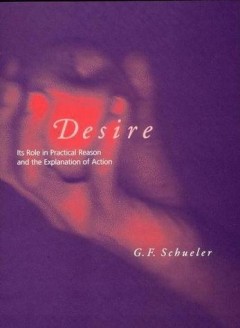
Desire: its role in practical reason and the explanation of action
"A Bradford book."OCLC-licensed vendor bibliographic record.
- Edition
- -
- ISBN/ISSN
- 9780262283243
- Collation
- 1 online resource (xi, 223 pages)
- Series Title
- -
- Call Number
- -

Who's asking? : Native science, Western science, and science education
"The answers to scientific questions depend on who's asking, because the questions asked and the answers sought reflect the cultural values and orientations of the questioner. These values and orientations are most often those of Western science. In Who's Asking?, Douglas Medin and Megan Bang argue that despite the widely held view that science is objective, value-neutral, and acultural, scient…
- Edition
- -
- ISBN/ISSN
- 9780262319430
- Collation
- 1 online resource (xii, 282 pages) :illustrations
- Series Title
- -
- Call Number
- -
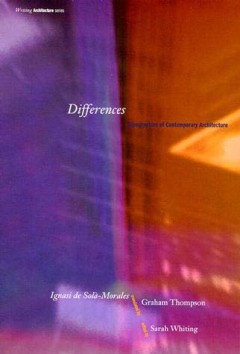
Differences: Topographies of Contemporary Architecture
Differences brings together ten essays written over the past decade by the distinguished Spanish architect and theorist Ignasi de Solà-Morales. Differences brings together ten essays written over the past decade by the distinguished Spanish architect and theorist Ignasi de Sola-Morales. Many of the essays have never previously been translated, and the author has provided a new introduction …
- Edition
- -
- ISBN/ISSN
- 9780262287012
- Collation
- -
- Series Title
- -
- Call Number
- -
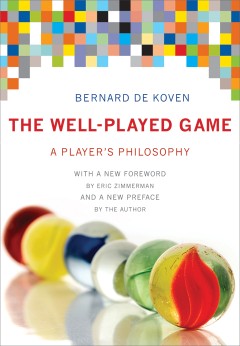
The well-played game : a player's philosophy
"In The Well-Played Game, games guru Bernard De Koven explores the interaction of play and games, offering players -- as well as game designers, educators, and scholars -- a guide to how games work. De Koven's classic treatise on how human beings play together, first published in 1978, investigates many issues newly resonant in the era of video and computer games, including social gameplay and …
- Edition
- -
- ISBN/ISSN
- 9781461939450
- Collation
- 1 online resource
- Series Title
- -
- Call Number
- -
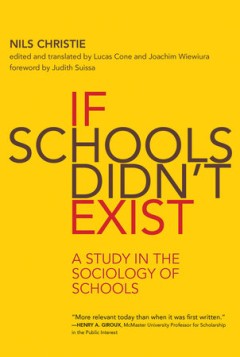
If Schools Didn't Exist: A Study in the Sociology of Schools
A classic in the philosophy of education, considering the fundamental purpose and function of schools, translated into English for the first time. This classic 1971 work on the fundamental purpose and function of schools belongs on the same shelf as other landmark works of the era, including Ivan Illich's Deschooling Society, Paulo Freire's Pedagogy of the Oppressed, and John Holt's How Chil…
- Edition
- -
- ISBN/ISSN
- 9780262358477
- Collation
- -
- Series Title
- -
- Call Number
- -
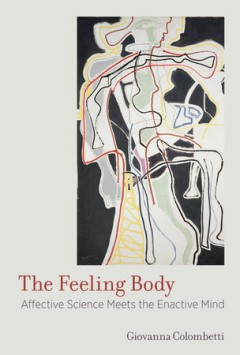
The Feeling Body: Affective Science Meets the Enactive Mind
In The Feeling Body, Giovanna Colombetti takes ideas from the enactive approach developed over the last twenty years in cognitive science and philosophy of mind and applies them for the first time to affective science -- the study of emotions, moods, and feelings. She argues that enactivism entails a view of cognition as not just embodied but also intrinsically affective, and she elaborates on …
- Edition
- -
- ISBN/ISSN
- 9780262318419
- Collation
- 1 online resource (xviii, 270 pages)
- Series Title
- -
- Call Number
- -
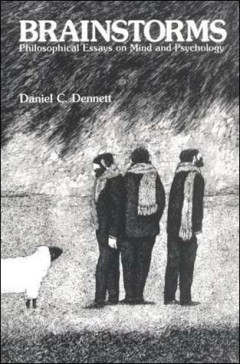
Brainstorms :philosophical essays on mind and psychology
"A Bradford book."This collection of 17 essays by the author offers a comprehensive theory of mind, encompassing traditional issues of consciousness and free will. Using careful arguments and ingenious thought-experiments, the author exposes familiar preconceptions and hobbling institutions.This collection of 17 essays by the author offers a comprehensive theory of mind, encompassing traditiona…
- Edition
- 1st MIT Press edition.
- ISBN/ISSN
- 9780262271509
- Collation
- 1 online resource (xxii, 353 pages)
- Series Title
- -
- Call Number
- -
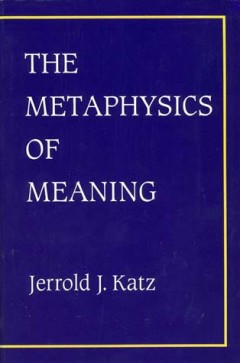
The Metaphysics of Meaning
In "The Metaphysics of Meaning, Jerrold J. Katz offers a radical reappraisal of the "linguistic turn" in twentieth century philosophy. He shows that the naturalism which emerged to become the dominant philosophical position was never adequately proven. Katz critiques the major arguments for contemporary naturalism and develops a new conception of the naturalistic fallacy. This conception, inspi…
- Edition
- -
- ISBN/ISSN
- 9780262276795
- Collation
- -
- Series Title
- -
- Call Number
- -

Microcognition: Philosophy, Cognitive Science, and Parallel Distributed Proce…
Parallel distributed processing is transforming the field of cognitive science. Microcognition provides a clear, readable guide to this emerging paradigm from a cognitive philosopher's point of view. It explains and explores the biological basis of PDP, its psychological importance, and its philosophical relevance.
- Edition
- 1
- ISBN/ISSN
- 9780262270441
- Collation
- -
- Series Title
- -
- Call Number
- -
 Computer Science, Information & General Works
Computer Science, Information & General Works  Philosophy & Psychology
Philosophy & Psychology  Religion
Religion  Social Sciences
Social Sciences  Language
Language  Pure Science
Pure Science  Applied Sciences
Applied Sciences  Art & Recreation
Art & Recreation  Literature
Literature  History & Geography
History & Geography